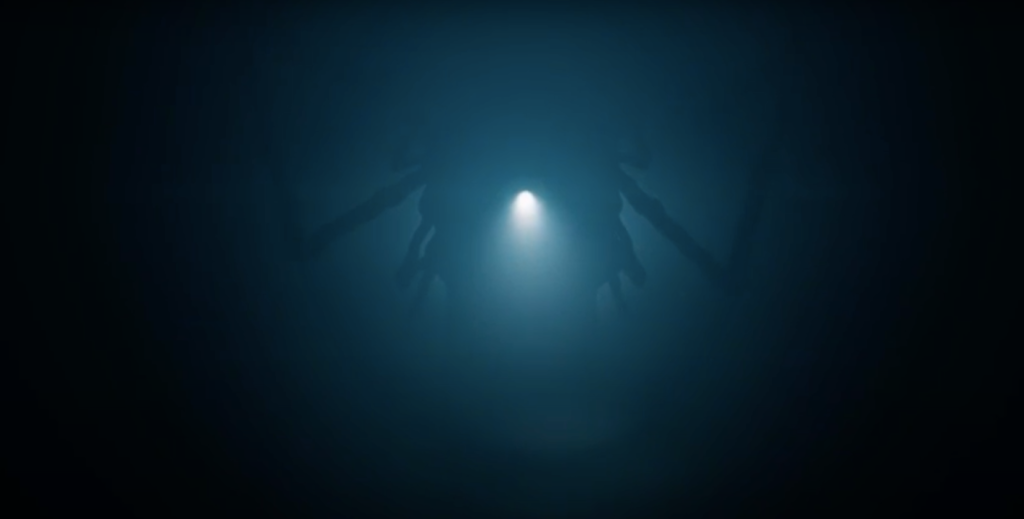How Control: The Foundation Changes Jesse Faden
Control's The Foundation DLC finds protagonist Jesse Faden in a strange place. How has this latest adventure inside the Oldest House changed her?

Control’s central metaphor is about revealing hidden things. Specifically, it’s about pulling away a poster on the wall of a jail, finding the whole world outside. In the game, Jesse Faden delves into a secret NYC building called the Oldest House to find the group she’s always suspected kidnapped her brother. Inside, she finds the Federal Bureau of Control, the government agency responsible for tackling unexplained phenomena, itself overseen by a mysterious entity called the Board.
By the start of the game’s first DLC, The Foundation, Jesse is well-versed in a whole new world of weirdness. She has embraced her role as director of the FBC, including her alliance with the new head of the research department, Emily Pope. At the start of Control‘s story, Jesse was supernaturally appointed by the Board, an inverted pyramid that looms over the astral plane and issues messages in a garbled language. The Board’s unknown motivation and bureau-wide power contrasted with the mundane way Jesse and Emily assign agents to explore the astral plane sums up the game’s humorously bureaucratic attitude toward the supernatural.
A large part of Jesse’s story in Control is about growing as a powerful magic user and a leader. The Foundation moves Jesse’s characterization forward in terms of her opinion on the role of director and her relationship with Emily, the Board, and another supernatural behemoth known as the Former. The story is too light to do more than gesture at most of this, though, and Control’s wonderful aesthetic that leaves more questions than answers begins to fray. There’s a difference between the pleasant mystery of what exactly the Board is and being unsure of what the game is trying to say. The political and supernatural ramifications are slightly different, and it’ll take another story or two to find out how they shake out.
Just as Jesse embraces the directorship, things become more complicated. What do the warring residents of the astral plane want from her? And will finding out distract her from the other major revelation of the DLC: that a previous researcher, Ash, succumbed to an almost religious fervor in the House’s lowest floors? Ever since they started working under the Board, the directors have all taken up the position (and died or retired) under strange circumstances. Jesse has the chance to break that cycle. As an outsider with a grudge against the FBC, embracing the directorship means something different for her: a chance to change it from the inside — if the supernatural forces at play let her.
The most noticeable change Jesse has gone through in The Foundation is that she is more certain in her ability to control the Bureau. Even when she fails in her mission, she remains determined to alter the agency’s direction. She has plenty of motivation to do so. The FBC has hurt the only family she has left by using him as an experiment to find out more about psionic powers and the supernatural qualifications required for directorship. What exactly the FBC’s connection to the wider federal government is is unclear, but its operations span the United States and sometimes beyond. Because the FBC is so bureaucratic, most of the commentary about the government comes in the form of exhaustive paperwork or cover-ups, as if The X-Files was really mostly about filing. Jesse’s politics are limited to the FBC. Her relationship to it becomes even less about human choice when the DLC expands on the Board.
In The Foundation, the conflict between the Board and the Former pulls the rug out from under Jesse again. It broadens the lore but also distracts from the story of the FBC’s very human flaws. She’s beginning to rebel against the Board, which doesn’t disguise its feeling of superiority and control over the human it appointed as director. “You should feel honored/handled,” the Board says, the strange and creative way of speaking in alternative subtitles perhaps revealing the Board’s patronizing nature. But Jesse isn’t having it. Later, she declares, “I don’t like you deciding what I can slash can’t have.”
One of the best moments in the DLC comes from a second meeting with the Former. First seen in the main game as a side boss possessing (?) a refrigerator, this giant creature lives in the astral plane and had some kind of falling out with the Board. It appears just as Jesse is beginning to suspect she and the Board have different ideas about what directorship entails. If Jesse is supposed to run the place, she’s going to run it … and the Former, whatever motivates it, is willing to give her more powers.

Jesse’s relationship with the other main human character in the DLC also touches on what her directorship will be like. She clashes briefly with Emily Pope, who wants to make plans where Jesse dives in. Jesse’s fighting against a pattern the last few directorships have fallen into. Both have had tense relationships between the two most influential managers in the Oldest House, the director and the head of research. The previous head of research, Casper Darling, disappeared after his counterpart’s death paved the way for Jesse. Before that came the father and son duo of researcher Theodore Ash Jr. and his dad, the last director to hold the position before the Board got involved and the first to run the bureau from the Oldest House. Emily Pope is Jesse’s closest ally, but is there something about their job titles in the FBC that means they’re fated for tragedy? Does escaping that cycle have something to do with rebelling against the Board? The Foundation suggests it but doesn’t state it outright.
The directorship itself is also suspicious. Ash Jr. is compelled by the spell of the House but also suspects something is wrong. “We were shown the way inside so we could help, but all we’ve done is fall victim to the same parasite,” he muses. The last three directors died under strange circumstances (or, in Northmoor’s case, entered some kind of death-like stasis because he was unable to control his own supernatural powers.) Jesse wants to be sure whatever supernatural cycle controlled the fates of the previous directors doesn’t hit her too.
What is the parasite? The Board, the hive mind Hiss, the Former, or something else? Did the Board draw Jesse to the Oldest House because it thought she would be easily controlled? Are the problems she needs to fix in the Oldest House supernatural, political, or both?
Leaving some questions unanswered adds to the frightening, strange atmosphere of the game, and The Foundation simply didn’t have time to return to the fate of Jesse’s brother, who remains in a coma. Jesse is still determined to reform the FBC and to make sure no other families are torn apart in the name of studying supernatural forces. But those forces are dangerous, and she’s going to have to contend with that too.
Now more comfortable using her powers, both magical and managerial, she has even less solid ground to stand on. It’s up to Remedy whether the writing in the next installments of the game can balance the government story, the Board, the Former, and Jesse’s family and friends while making a coherent statement that still feels mysterious.
Control is out now for Xbox One, PlayStation 4, and PC. It will also be available on the PlayStation 5 and Xbox Series X at a later date. The next story expansion, AWE, will explore the FBC’s connection to Alan Wake, another character created by Remedy.
